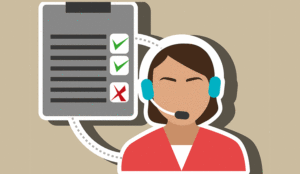What is a Blended Agent?
Blended agents are trained to handle both incoming and outgoing calls. This generally involves the ACD identifying a rise in incoming call volume and switching outbound agents’ duties to handle the overflow. Alternatively, inbound agents can be assigned to outbound calls when incoming volume is low.
Without an automated system in place, the real-time manager can decide when more agents are required for a particular role, and instruct them to switch.
Potential Benefits of Blended Agents:
- Increased occupancy
- Promotion of short-term offerings
- Reduced queueing
- Greater staff satisfaction
Blended agents can add value in a variety of contact centres, and are especially useful in centres with few seats. This is because small centres are vulnerable to low levels of occupancy, and thus low efficiency, based on peaks and troughs in call volume.
By using blended agents, contact centres are able to assign a pool of agents to outbound work when inbound volume is low – later, agents can be relocated to inbound calls as traffic rises.
In centres where low occupancy is a recurrent issue, there may be a case to be made for adopting a blended approach. However, this could be a drastic solution to a problem that might otherwise be solved by revisiting scheduling practices.
Blended agents can also be used on a short-term basis to promote campaigns. Inbound agents can be trained against a simple script to make outbound calls for the duration of a promotion.
Issues to Consider
When blending is an automated process, it is important to check that well-defined protocols are followed. Agents need to be clearly and unambiguously informed when they will be switching role; once switched, they should be kept in that role for a reasonable amount of time rather than passed back and forth.
Furthermore, it is advisable to minimise confusion by keeping agents in a consistent workstream (customer service, sales, technical support, etc.) for both making and receiving calls.
Although blended agents occupy a more challenging role, the difficulty is arguably offset by a reported increase in satisfaction among staff whose work is more varied. Also, as this opportunity will likely be offered to experienced agents, blended roles can be discussed as career progression and recognition of value.
Blended agents tend to specialise in either inbound or outbound calls, but are usually handled as a third category, separate from inbound and outbound agents. Depending on how the agents’ skills are used, this can add an extra layer of complication to staff scheduling. Whether or not a minimum number of blended agents are to be scheduled at all times is generally one of the key issues to address before implementing a blended approach.
Author: Megan Jones
Published On: 8th Jul 2016 - Last modified: 20th Apr 2022
Read more about - Definitions, Occupancy















